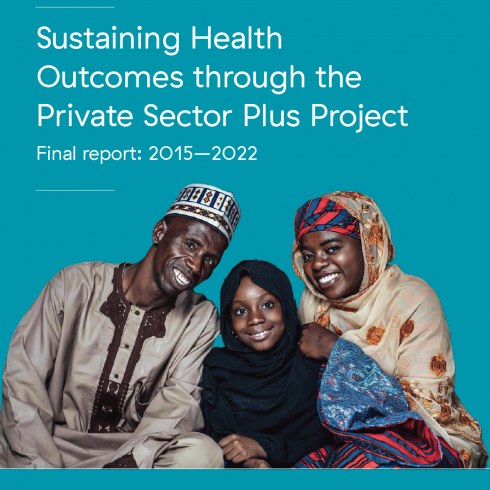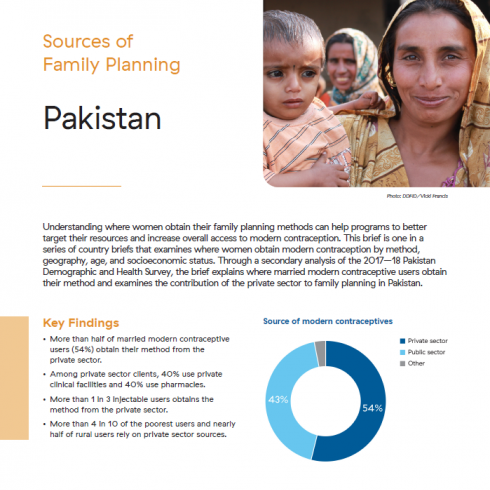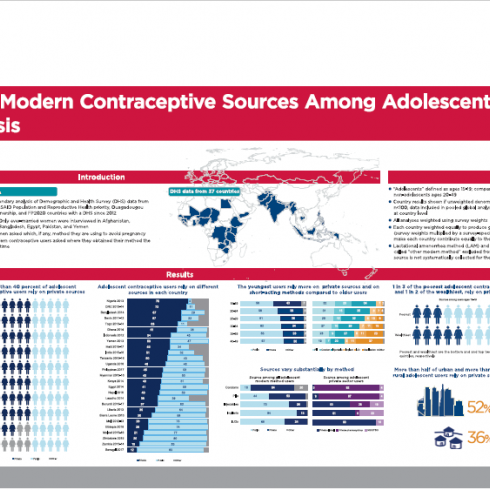In Pakistan, access to and availability of health services is low, particularly among poor and rural populations. Approximately 81 percent of the population in Khyber Pakhtunkhwa lives in rural areas, which poses specific challenges for accessing health services. Increasingly, the private sector plays a critical role in ensuring access to key child health services.
Maternal mortality, neonatal mortality, and under-five mortality rates remain high, particularly among rural populations. In this challenging context, the private sector plays a critical role in ensuring access to key child health services. While less than half of women deliver in a health facility, among those women who do, 70 percent nationally and 60 percent in Khyber Pakhtunkhwa choose a private facility. The private sector is also the dominant source of sick child care in Pakistan. National data show that 51 percent of children with diarrhea and 60 percent with symptoms of acute respiratory infection are taken to a private clinic for advice or treatment.
In Pakistan, SHOPS Plus contributed to the scale up of chlorhexidine for newborn cord care in the private sector.
Photo credit: Asian Development Bank





